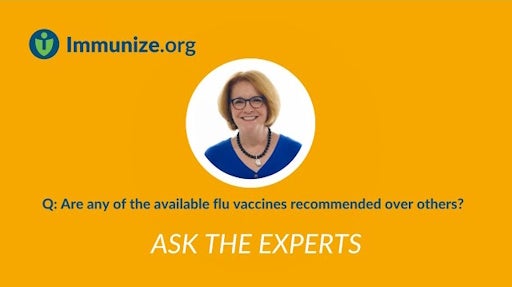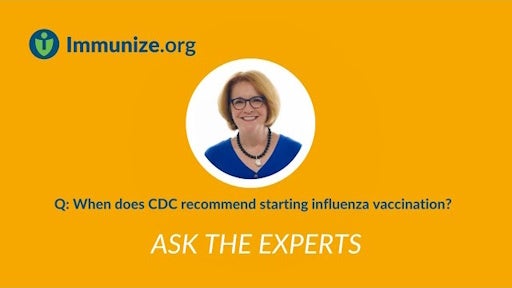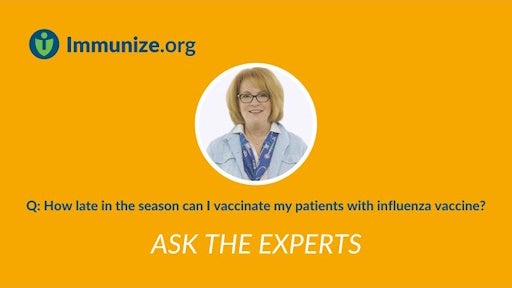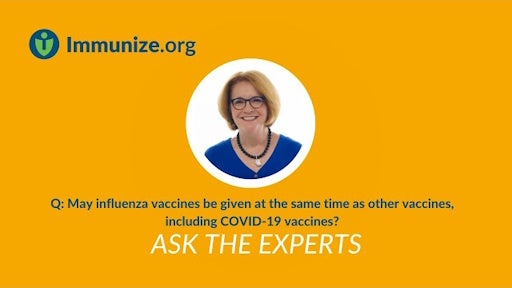- Influenza
- Vaccine Recommendations
Please summarize what’s new in CDC’s 2024-25 season influenza vaccine recommendations.
Yearly influenza vaccination continues to be recommended for everyone age 6 months and older. Changes relevant to clinical practice in the CDC’s published ACIP recommendations for influenza vaccination in the 2024-25 season are summarized below:
- ACIP now recommends high-dose inactivated influenza vaccine (HD-IIV) or adjuvanted inactivated (aIIV) influenza vaccine (each licensed by FDA for people age 65 years or older) as acceptable options for influenza vaccination of solid organ transplant recipients age 18 through 64 years who are on immunosuppressive medication regimens. There is no preference for aIIV or HD-IIV over any other age-appropriate inactivated or recombinant influenza vaccine in this group.
- The HD-IIV vaccine, which is now trivalent, is given at a dose of 0.5 mL (the previous dose for quadrivalent HD-IIV was 0.7 mL).
- ACIP affirmed that everyone age 6 months and older who has an egg allergy should receive influenza vaccine. Any influenza vaccine (egg based or non-egg based) that is otherwise appropriate for the recipient’s age and health status may be used. ACIP updated its recommendation to state that egg allergy alone necessitates no additional safety measures for influenza vaccination beyond those recommended for any recipient of any vaccine, regardless of severity of previous reaction to egg. All vaccines should be administered in settings in which personnel and equipment needed for rapid recognition and treatment of acute hypersensitivity reactions are available.
The current ACIP recommendations for influenza vaccination are available here: www.cdc.gov/acip-recs/hcp/vaccine-specific/flu.html.



